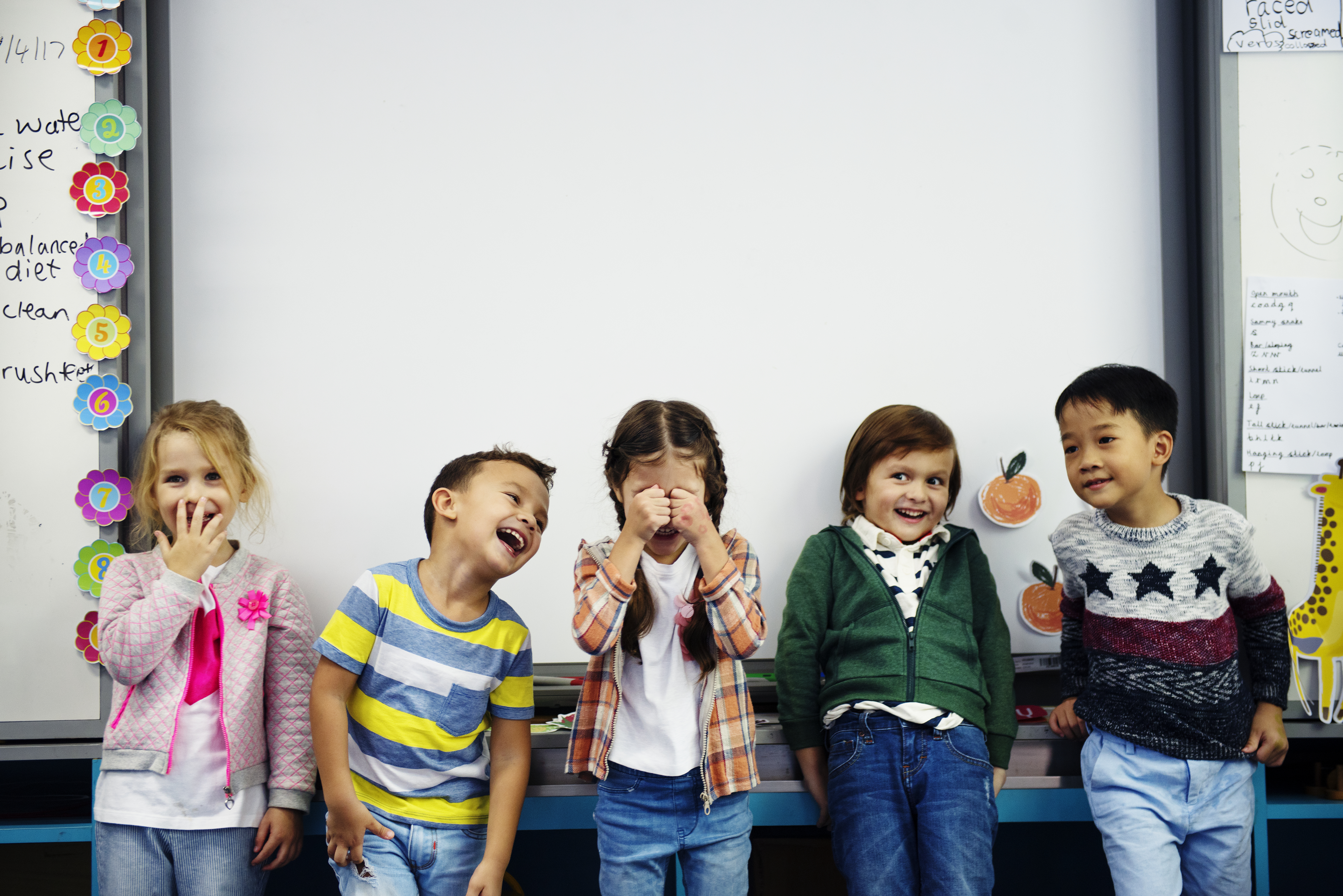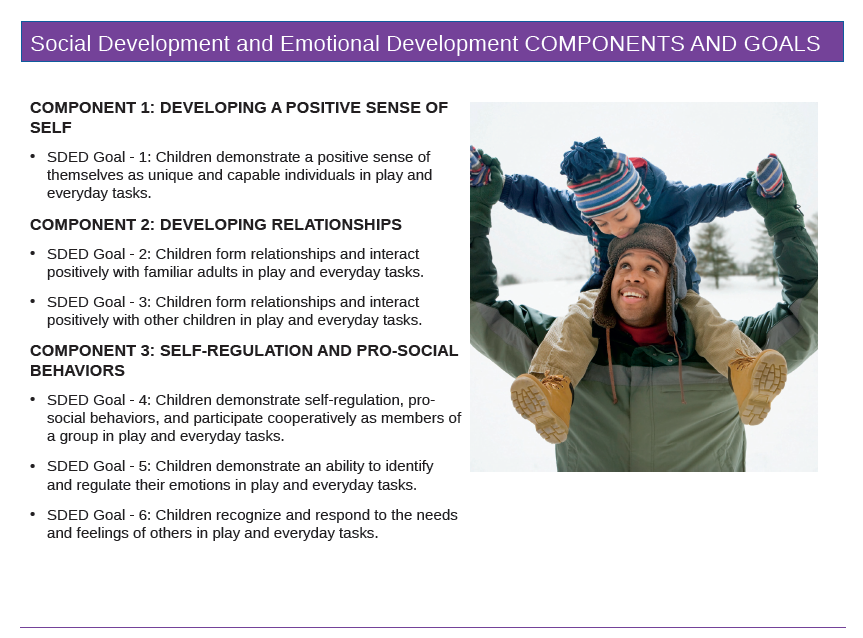
Social Development & Emotional Development (SDED)
Social Development and Emotional Development Domain
The Social Development and Emotional Development domain includes children’s feelings about themselves and their relationships with others. Learning to manage and express emotions is also a part of this domain. As the foundation for personality development, the skills and characteristics included in this domain affect progress in every other area of development.
Relationships
Children’s social skills and the relationships they form with others are important for their overall development. Early relationships provide the basis for children’s later relationships with adults and with peers. Through positive early relationships with adults, children learn to understand and care about others. They also gain skills that help them have an easier time adjusting to the demands of formal schooling when they are older. Sensitive and positive interactions with all adults, including family, caregivers, and teachers are particularly important for infants and toddlers because they are learning to form attachments, or strong ties, to people who care for them. These vital relationships establish a strong foundation for social development and emotional development enabling children to feel safe and support learning through exploration.
Environments
Warm, responsive, and predictable environments help children thrive emotionally and socially. Adults can provide an environment that is relatively calm, positive and stable with appropriate expectations based on age and development. When adults pay attention to children’s cues, responding consistently with positive regard, children are assisted in learning to manage emotions, impulses, and regulate reactions. They learn to feel good about themselves and to relate positively with others. Play experiences also help with the development of pride, joy, and mastery of skills. As children play, they learn self-control, turn-taking, sharing, negotiation, and appropriate ways to express their emotions. Play also helps children work through situations they may not understand and explore roles that are unique to their family and culture.
Temperament
It is important to keep in mind that a number of factors affect children’s social development and emotional development. A child’s temperament, the unique way a child responds to the surrounding world, plays a big role in how they express emotions and relate to others. Some children may be generally happy and very friendly, while others may be more withdrawn or shy. Sensitive adults recognize that children respond differently when exposed to a variety of situations. Responsively interacting with children in ways that match each child’s temperament supports social development and emotional development.
In addition to temperament, children have other characteristics and experiences that can affect their social development and their emotional development. Some children, including those who have disabilities may require additional support in learning to express their emotions and/or develop positive relationships. For instance, a child with sensory impairments, such as vision and hearing impairments, may need specialized assistance to develop a strong sense of self and/or form relationships with other children. Children who are Dual Language Learners may need some help communicating with peers who do not speak their home language. Adults must be “in tune” with each child as an individual in order to fully support children’s social development and emotional development.
Finally, a child’s family and culture play an important role in social development and emotional development. Some families and cultures encourage children to be more reserved while others may encourage children to be more outgoing. Some examples include how children communicate, the degree to which children are expected to be assertive or how children show respect to adults. Sensitive adults keep cultural and family differences in mind as they support children’s social development and emotional development.

Component 1: Developing a Positive Sense of Self
Component 2: Developing Relationships
